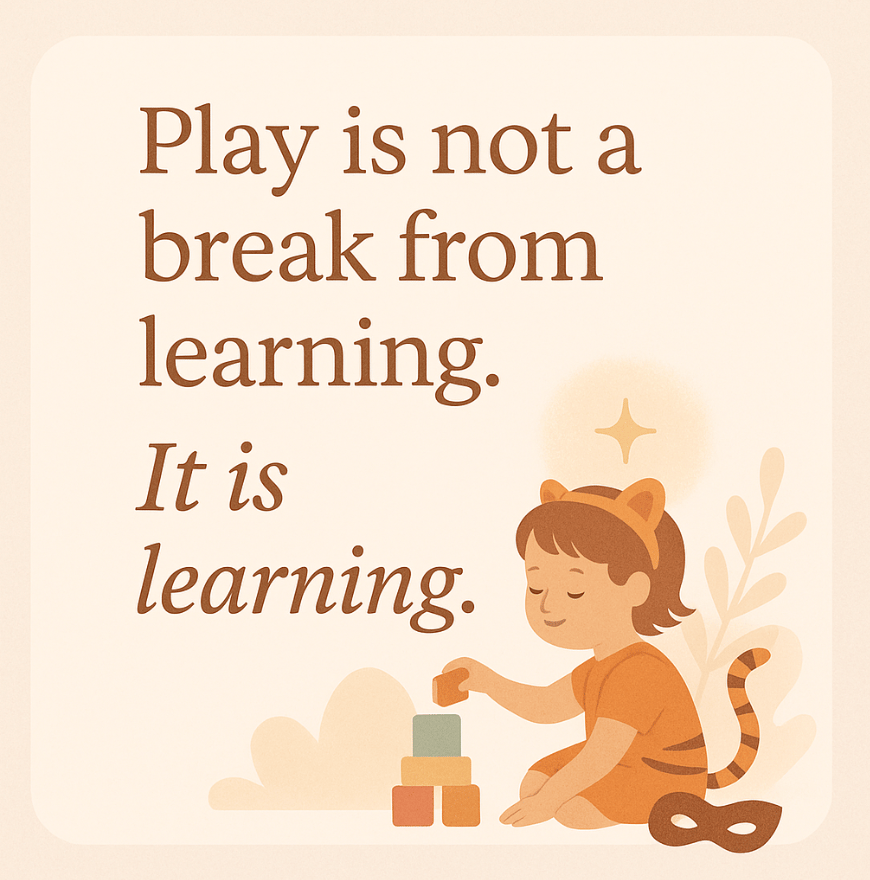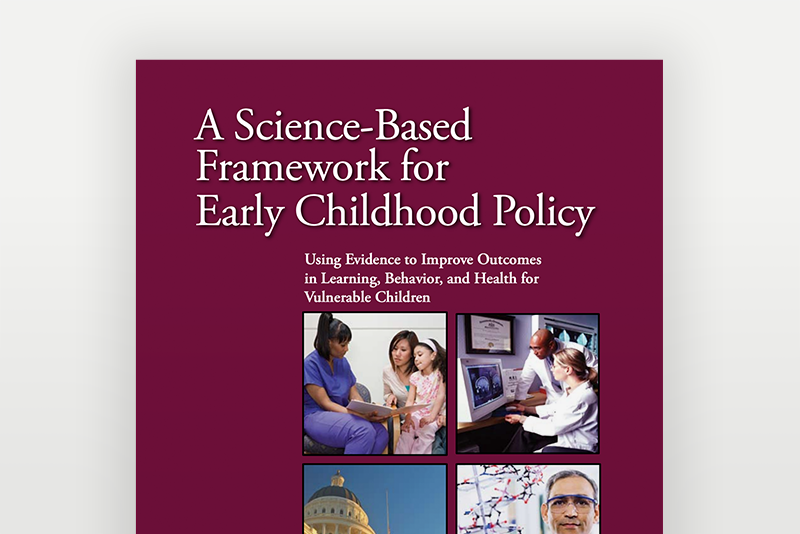The Energy You’ve Been Missing
Now you can feel sharp, steady, and fully present—with no crash or jitters.
Korrect Energy™ is your clean alternative to sugary energy drinks and that second (or third) cup of coffee.
Formulated with fast-acting, novel caffeine metabolites and botanicals, it fuels long-lasting energy, enhances focus, and helps you stay locked in—no matter the time zone or task at hand.
🌱 No sugar. No artificial flavors.
🧠 Supports mood, clarity, and stamina
🏃♂️ Great for work, workouts, or everyday hustle
When your energy is Korrect, everything flows.
These statements have not been evaluated by the Food and Drug Administration. This product is not intended to diagnose, treat, cure, or prevent any disease.
💛 A Little Click Goes a Long Way
We carefully choose the ads in this newsletter to make sure they’re family-friendly and relevant. When you click on them, you’re helping keep Playful Parent free and thriving—so thank you for supporting us with just a tap or two!
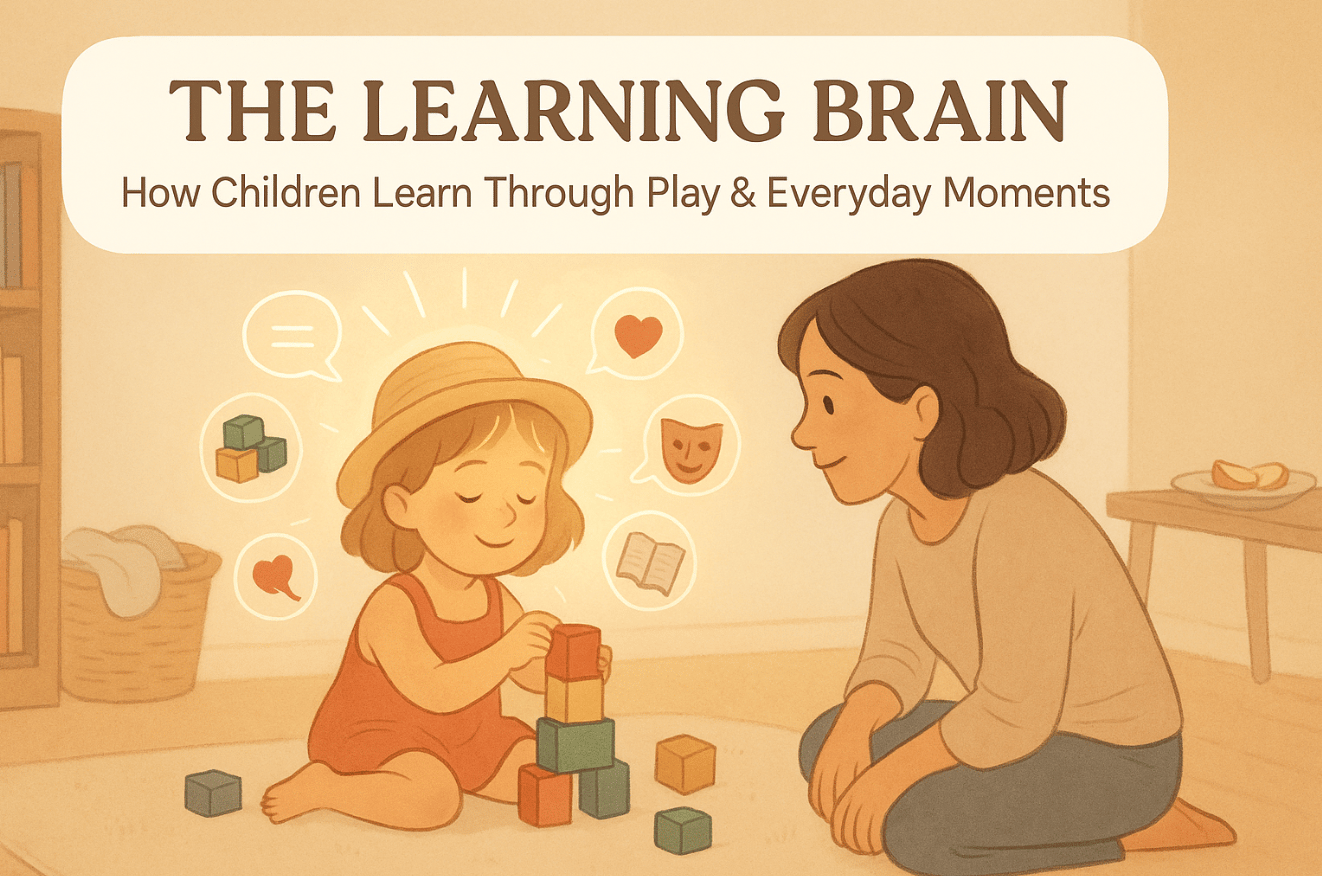
🧠 Don’t Rush the Skills That Build the Skills
Why play and connection matter more than early academics
It’s easy to feel like your child should be doing more.
Writing their name. Counting to 100. Recognizing sight words.
We’re surrounded by charts, checklists, and well-meaning pressure — all suggesting that success comes from learning more, earlier.
But development doesn’t move faster just because we want it to.
In fact, trying to push too soon can get in the way of what matters most: building the brain from the bottom up — through relationships, routines, and real experiences.
🌱 Foundations Before Flashcards
Before a child can sit down to learn, their brain has to be ready.
Not just willing — ready.
That readiness doesn’t come from drilling the ABCs.
It comes from skills that can’t always be seen, like:
Impulse control — waiting your turn, resisting the urge to shout
Working memory — holding steps in your mind while following directions
Emotional regulation — calming yourself when something is hard
Cognitive flexibility — switching gears when plans change
These are called executive function skills — and they’re the real foundation for learning.
They don’t develop through pressure. They develop through play.
🎭 Play Is the Practice Field for Life
When a child plays, they’re not wasting time — they’re running simulations.
A tea party teaches turn-taking, language, and empathy
Building a block tower requires planning, spatial awareness, and frustration tolerance
Playing "restaurant" builds memory, cooperation, and math skills
Making up a story uses sequencing, creativity, and language processing
These experiences light up multiple areas of the brain at once — something worksheets simply can’t do.
🧠 The Brain Learns Through Relationships
Even more powerful than the activity itself is how it’s done.
A connected caregiver asking, “What do you think will happen next?”
A loving adult saying, “You worked so hard on that!”
A calm presence during a hard moment saying, “I’ll help you figure it out.”
These interactions literally shape the brain.
The learning sticks because it’s wrapped in relationship.
🏡 Everyday Moments Matter Most
The best learning doesn’t happen in special programs or expensive toys.
It happens in the messy, mundane magic of real life:
Cooking together: counting, measuring, predicting
Sorting laundry: patterns, categorization, color recognition
Cleaning up: planning, organizing, working together
Playing in nature: wonder, risk-taking, sensory input
Naming emotions: building vocabulary + emotional intelligence
No app can replace what happens when a child is seen, supported, and invited into the world around them.
❤️ What They Need Most
Your child does not need to be ahead of the curve.
They don’t need flashcards, early reading apps, or rigid routines.
They need:
💞 Safety — “You’re loved no matter what.”
👀 Presence — “I’m here with you.”
🛠️ Opportunity — “Let’s explore together.”
🧘 Support — “I’ll help you calm down.”
🌱 Trust — “You’ll get there in your own time.”
These are the conditions where deep, lasting learning blooms.
🪴 A Final Thought:
Children learn best when they feel safe, curious, and connected.
So when you're wondering if you're doing enough — remember:
✨ Play is not a break from learning. It is learning.
And your presence is the most powerful teaching tool of all.
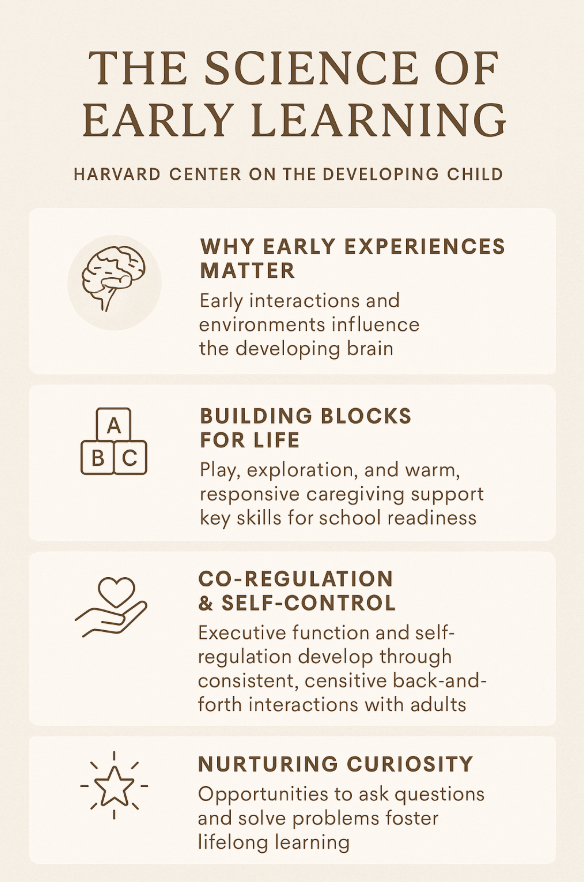
Want more fact based evidence? Check out this interesting read!
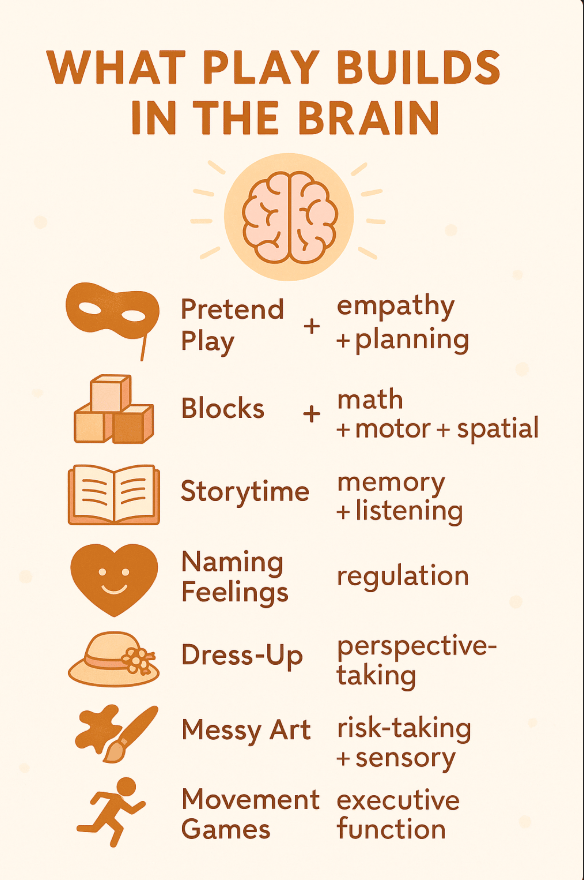
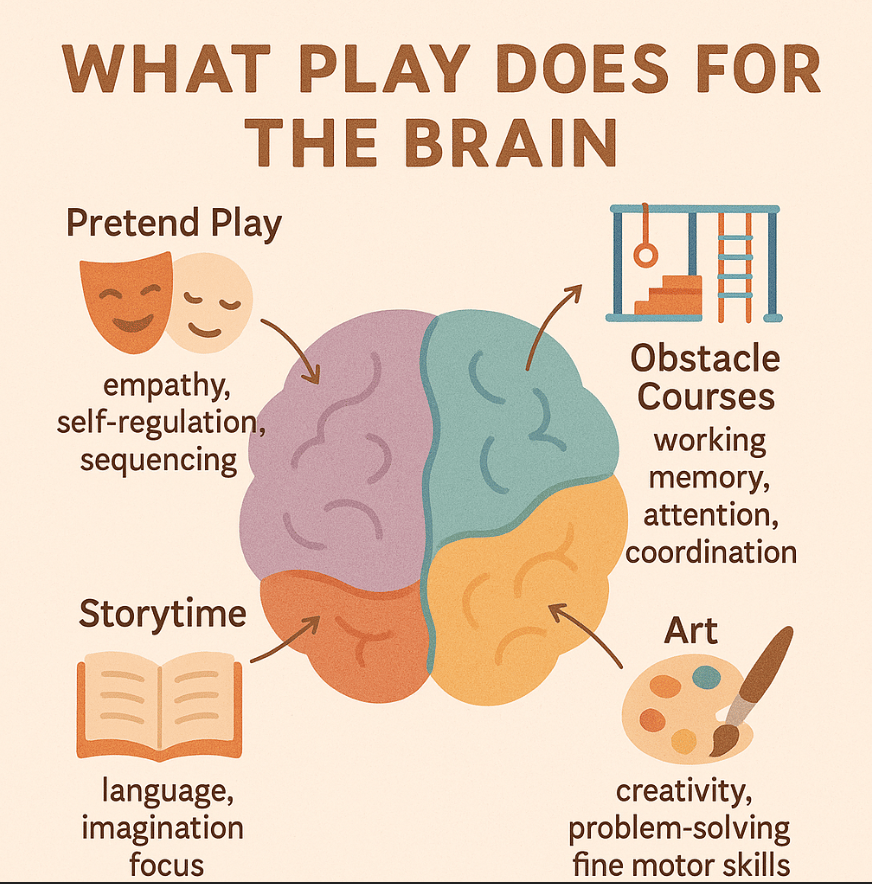
🪞 Reflection for Parents
Take a moment to think about your child’s day — not just what they accomplished, but how they explored, connected, and grew.
Did they pretend to be a tiger?
Build something with blocks?
Ask a curious question?
Get lost in a story?
Fall apart — and find their way back with your help?
These are not distractions from learning — they are the learning.
Even in the chaos, even in the mess, your presence gives their brain what it needs:
💞 Safety.
🛠️ Practice.
🌱 Encouragement.
🧠 Connection.
You don’t have to teach them everything.
You just have to show up with love, and let the learning unfold.
